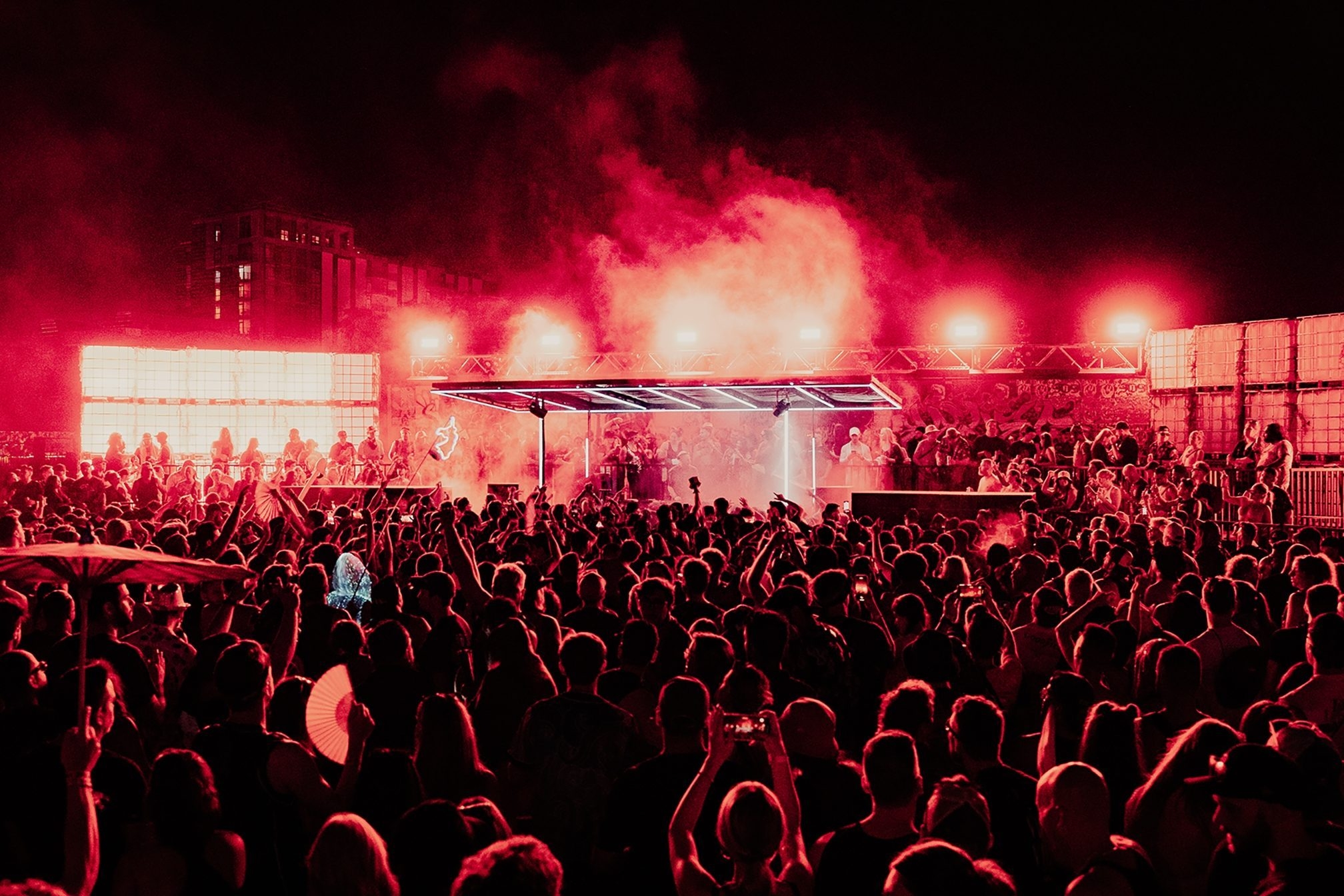 Features
Features
How ARC Music Festival’s global appeal is uplifting Chicago’s world class house scene
ARC is educating new audiences on dance music's roots and making the ever-evolving scene of Chicago a focal point on the international stage
Four decades after a revolutionary sound originated in Chicago and caught fire beyond its borders, ARC Music Festival is representing the global expansion of house music back home in its birthplace. Now in its third year, ARC’s thoughtful curation has established it as both a landmark event that the city’s dance music community has been waiting for and an international destination that ravers from further afield are making the pilgrimage to experience.
Unfolding across three days at Union Park and five nights of city-wide After Dark parties stretching either side, the 2023 edition features more than 120 artists, spotlighting many of Chicago’s influential pioneers and its thriving new school alongside a diverse spread of house and techno stars from Brazil, South Africa, Australia, Korea, Germany, the UK, and beyond, showcasing the proliferation of scenes and subgenres the culture has inspired.
The daytime festival is spread over four stages. The Grid is the largest and most imposing stage, flanked by black shipping containers painted in patterns of blended yellow, green and blue hues, and backed by huge screens displaying colourful visuals. It’s a spectacle, hosting Eric Prydz’s 3-D HOLO live show and unleashing an arsenal of pyrotechnics for its other headliners. Peggy Gou’s set is another exhibition, with psychedelic animations of her trademark giraffes complementing robust basslines, kick drums and the never-in-doubt sing-along to ‘(It Goes Like) Nanana’. The Elrow tent is somehow more eye-popping, with a glowing portal behind the booth and space-aged theme framing its confetti cannons and tech-house-leaning line-up.
Expansions feels more organic to the setting, nestled among woodland in the south-west corner of the park with a stage decorated in foliage and a dancefloor adorned in wooden art installations. It feels relaxed and comfortable beneath the blazing afternoon sun on Saturday, with Moodymann embracing MC mode and gassing up Detroit in his b2b with Carl Craig, as the crowd watches from the shade of trees. Sunday ramps up the energy, with stirring sets from South African Afro house stars Black Coffee and Themba, and huge crowds attracted by Brazilian dynamo Mochakk and Chicago deity Derrick Carter, who every artist in the city will tell you matter of factly is the greatest DJ on the planet. New for 2023 is Area 909, replacing the GoodBus-powered ARC Car with a more full-on and intense atmosphere. It turns totally delirious under the spell of sets from the likes of Mike Dunn b2b Terry Hunter, Phuture, Shaun J. Wright, Sara Landry and Hiroko Yamamura. As a site, Union Park is easy to navigate, never feeling overcrowded with its 20,000 attendees but compact enough that journeys between stages take only a handful of minutes.
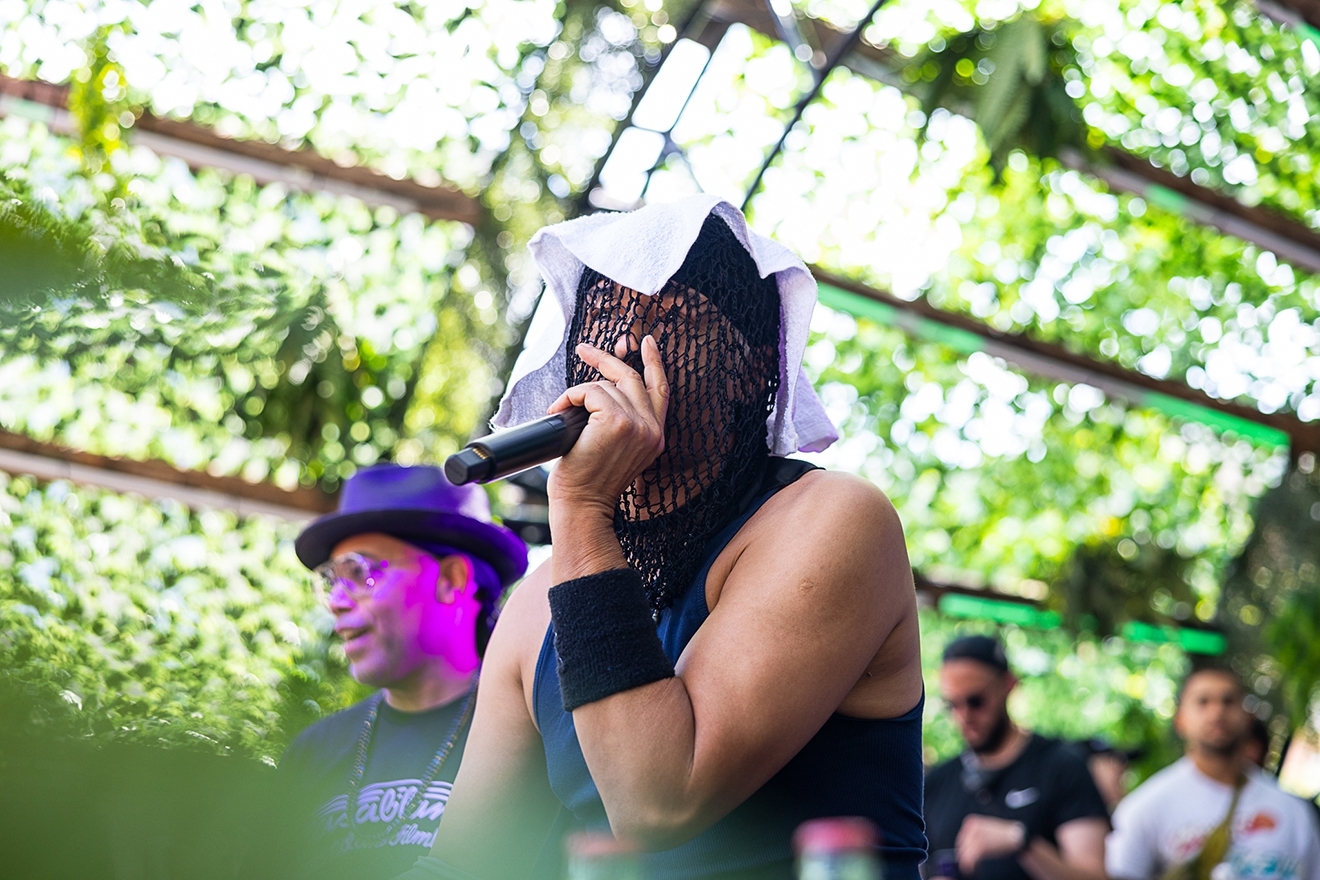
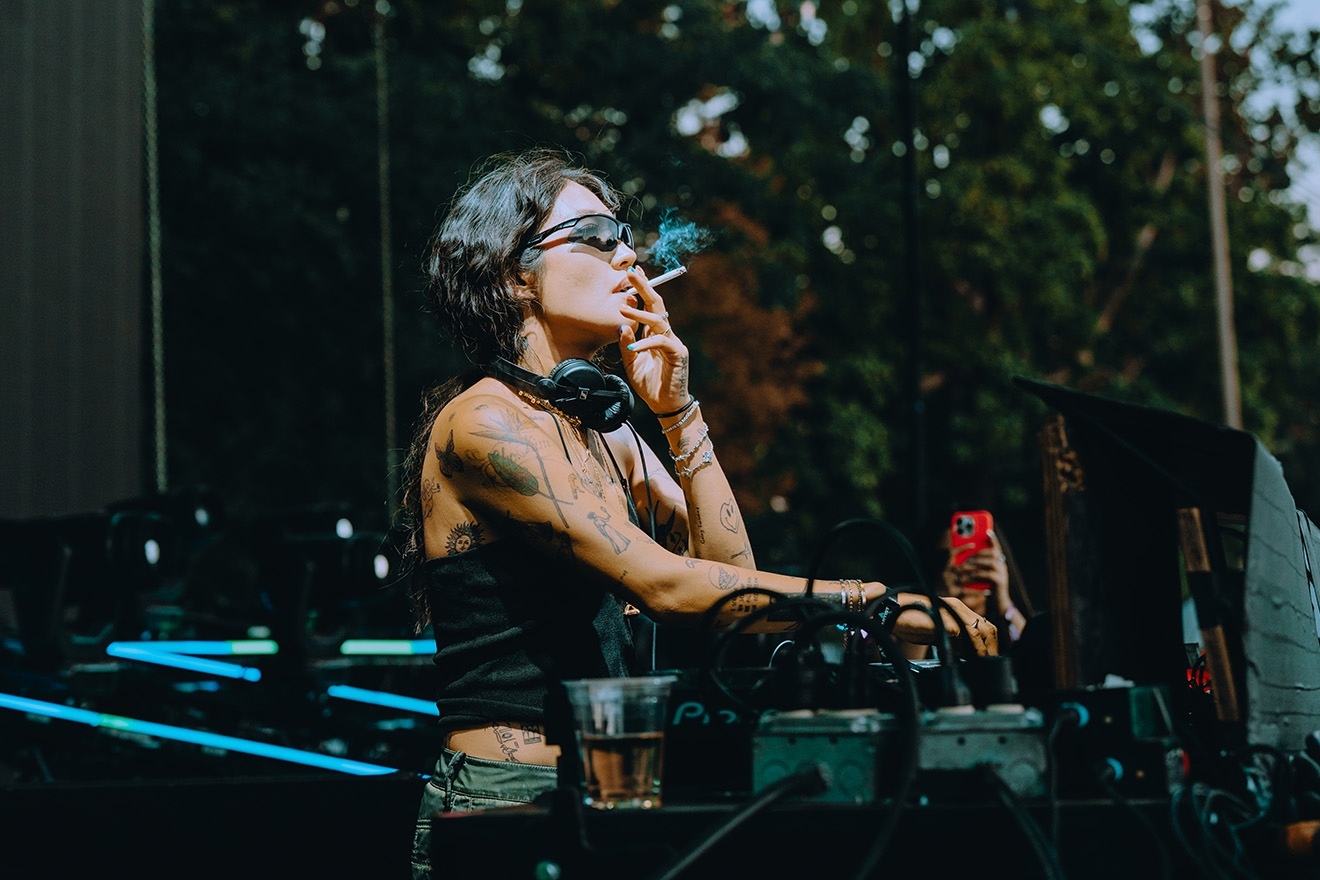
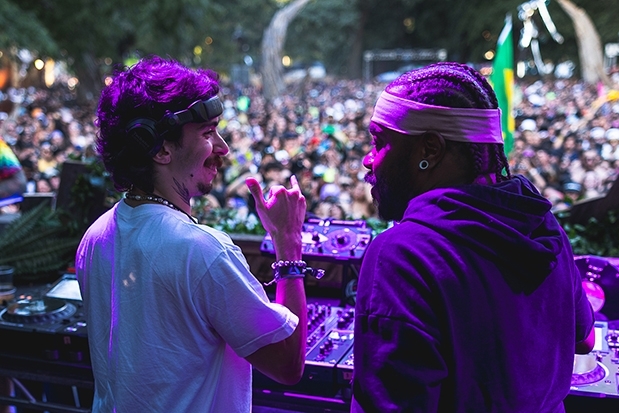
Upon night-time drawing in, an array of the best club rooms in the city (and one yacht) are taken over for the 40 After Dark dances, including legendary spots like Smartbar, Spybar and the vast converted steel factory of Radius. A line-up of hometown heroes immediately lays down a marker of the levels to expect in this city at Thursday’s Beatportal x Lady Of The House pre-party at Smoke & Mirrors. The club has a sleek and moody look, dimly lit with red lights and black anaglypta wallpaper. The sets from Biobooster, Dani Deahl, DJ Heather and DJ Lady D are electrifying, unleashing drum ‘n’ bass for the warm up and building through upbeat house to more tough and pounding territory, with flawless mixing throughout.
Read this next: 30 of the best Chicago house tracks
Smartbar delivers on its reputation as one of the best clubbing experiences on the planet, with pitch perfect soundsystems whipping every corner of the basement into feverish movement. Fresh off the back of a rowdy Expansions headline b2b set with Mall Grab, KETTAMA’s set on Friday night feels ecstatically loose. He pulls off blends such as Stardust’s ‘Music Sounds Better With You’ into BBK’s ‘Too Many Man’ and Floorplan’s ‘Never Grow Old’ into Lethal Bizzle’s ‘Pow’. Ariel Zetina b2b Madeline is the pick of Saturday, drawing for drag queen Moi Renee’s house anthem ‘Miss Honey’, which was recently sampled by Beyoncé, along with less mainstream-friendly ballroom cuts with lyrics dropping C-bombs. Upstairs in Metro, Mike Dunn and DJ Pierre scale up their selections to the bigger room, with some soaring house and piano-acid blends. On Sunday night, there’s no chance for weary legs as Volvox and Sara Landry pulverise Radius’ adjacent Cermak Hall warehouse with feral techno beneath a mind-boggling lighting rig.
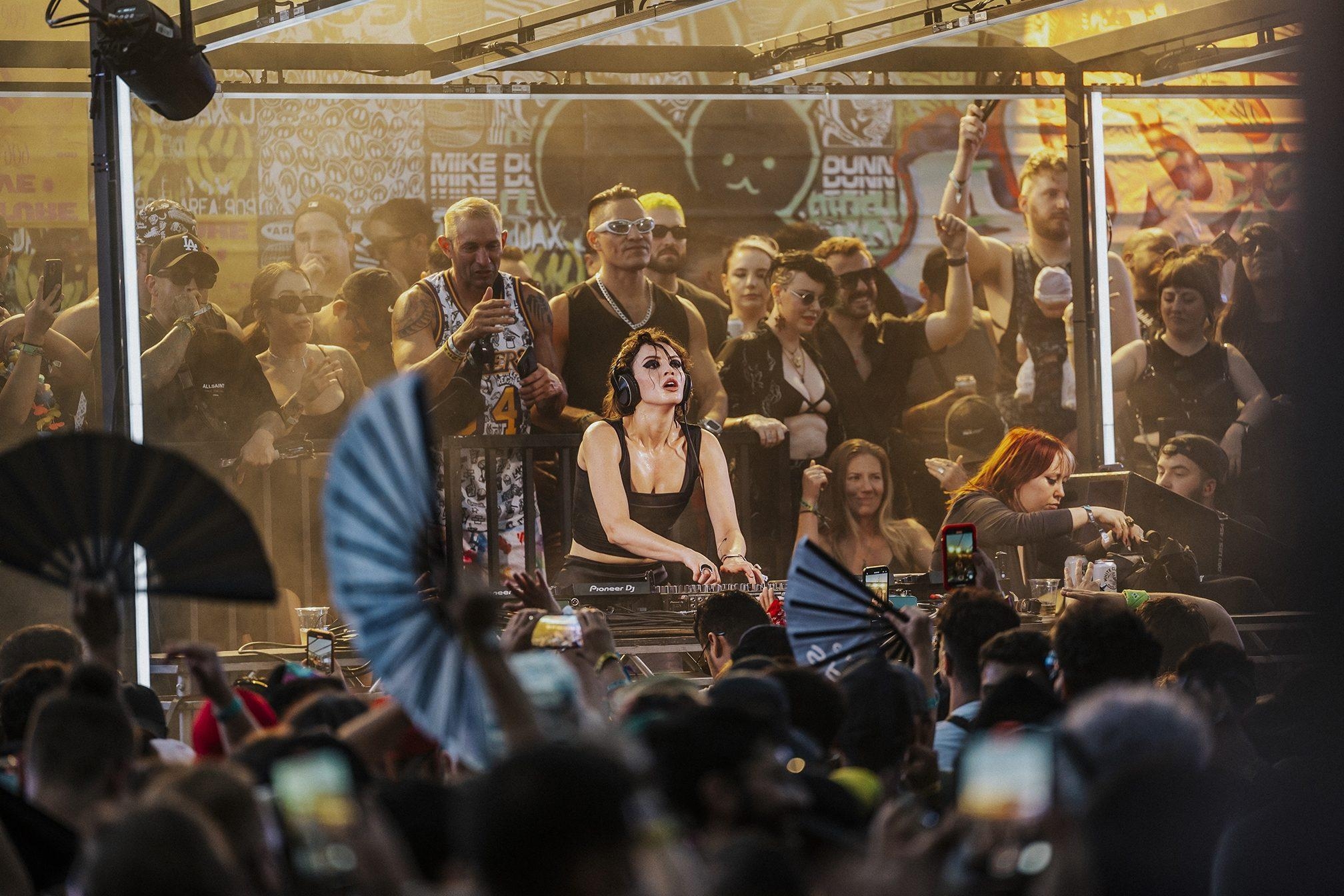
ARC was conceived during the height of the pandemic, when the nightlife industry was halted and forced into a period of reflection. A group of experienced promoters led by John Curley, Nick Karounos and Stuart Hackley came together to form independent events company Auris Presents, pooling their minds and resources to devise ways forward. “We were all sat down and brainstorming, talking about what we should be doing,” recalls Hackley. “The question became: 'What does Chicago really need right now? What is missing?'” Curley had the eureka moment: “I was like: ‘Hear me out — a house music festival in Chicago!’”
As you would expect, that’s not an original concept in itself: the Chosen Few Picnic began in 1990 and now attracts 40,000 house heads to Jackson Park each July, while events such as the Chicago House Music Festival & Conference and My House Music Fest have been running annually for years. But ARC’s focus on bringing together local luminaries and international heavy-hitters is new. In the age of house and techno tourism and the increasing domination of festivals in electronic music, an event like ARC can ensure Chicago’s world class scene receives the breadth of respect and attention it deserves. But as John Curley is cognizant of: “Only if it's done right, though."
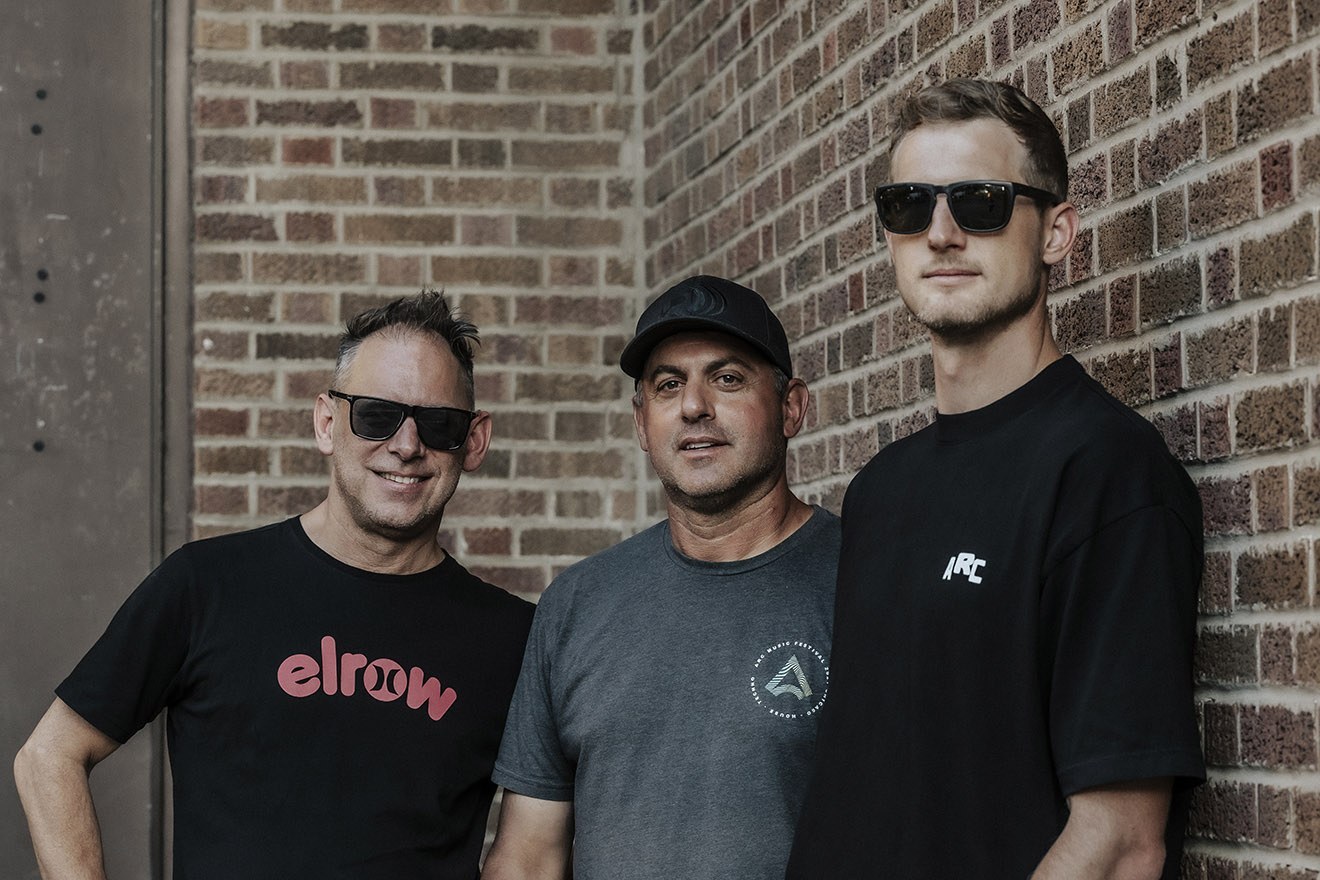
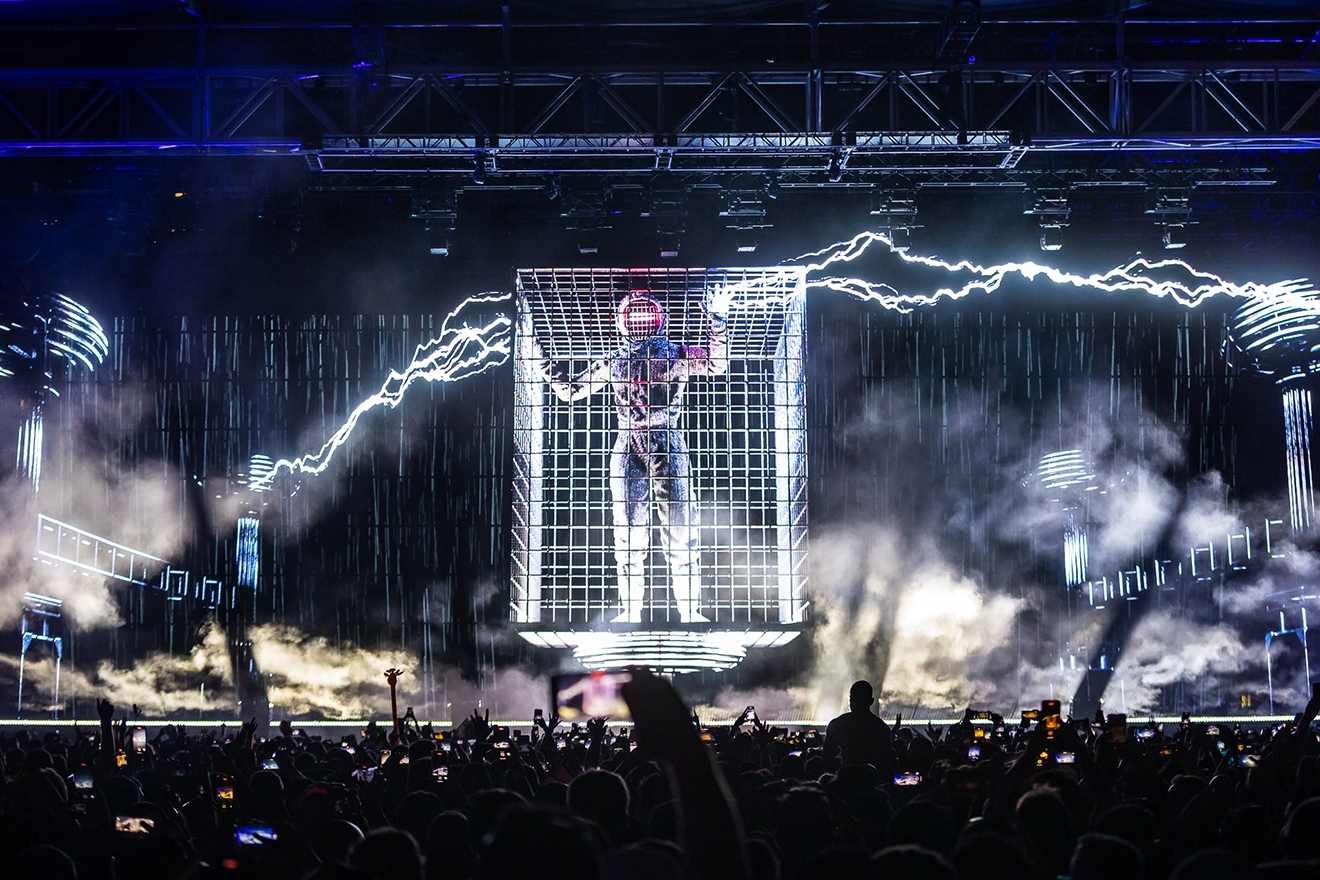
“Everything we do is very intentional in helping to educate [about the history of dance music], but also give people a fun experience,” notes Stuart Hackley. At the festival, those intentions are weaved into the production and programming. The newly launched Area 909, described as a “tribute to the historic musical connection between Chicago and Detroit”, proves to be a standout addition. Named after the influential Roland drum machine, it delivers an appropriately fierce atmosphere, placing hefty speaker stacks and an intimate dancefloor between graffiti-scrawled corrugated metal and a raised platform at the rear. It’s probably the closest thing you’ll find to an underground nightclub at an outdoor festival. Standing adjacent to the main stage The Grid, which caters more to fans of big room sounds, it attracts plenty of spillover throughout the weekend. On its Instagram, which suits a more didactic approach, ARC combines eye-catching designs and snackable storytelling in posts paying tribute to the “queer people of color [who] laid the foundations for house music”, honouring the legacy of DJ Deeon, or broadcasting a lesson on acid from DJ Pierre. Hearing someone drop Daft Punk's 'Teachers' at the artist bar, which namechecks the acid house legend, is an inspired selection.
Read this next: The history of acid house in 100 tracks
Pierre performs live as part of Phuture, a project he formerly left back in 1990 but returned to in 2014 with co-founder Spanky, wanting to stop the contributions of Black musicians to dance music being erased from history. “We noticed that people were trying to take the origins away from us because we were no longer performing. It's very important that we perform and be like, listen, we're the beginning of this sound. We made the first acid track, we coined the term, our first release was called 'Acid Tracks', so stop trying to pull other people in the mix,” he says. When Spanky passed away in 2016 he persevered, recruiting a new bandmate in Lessnoise. During their raucous set at Area 909, Pierre is valiantly dressed in soldier of the scene uniform, wearing what looks like a bulletproof vest with the word “ACID” emblazoned on it. “It’s important how ARC is including and highlighting the original people who created the music. What they're doing here should be at all festivals,” he asserts.
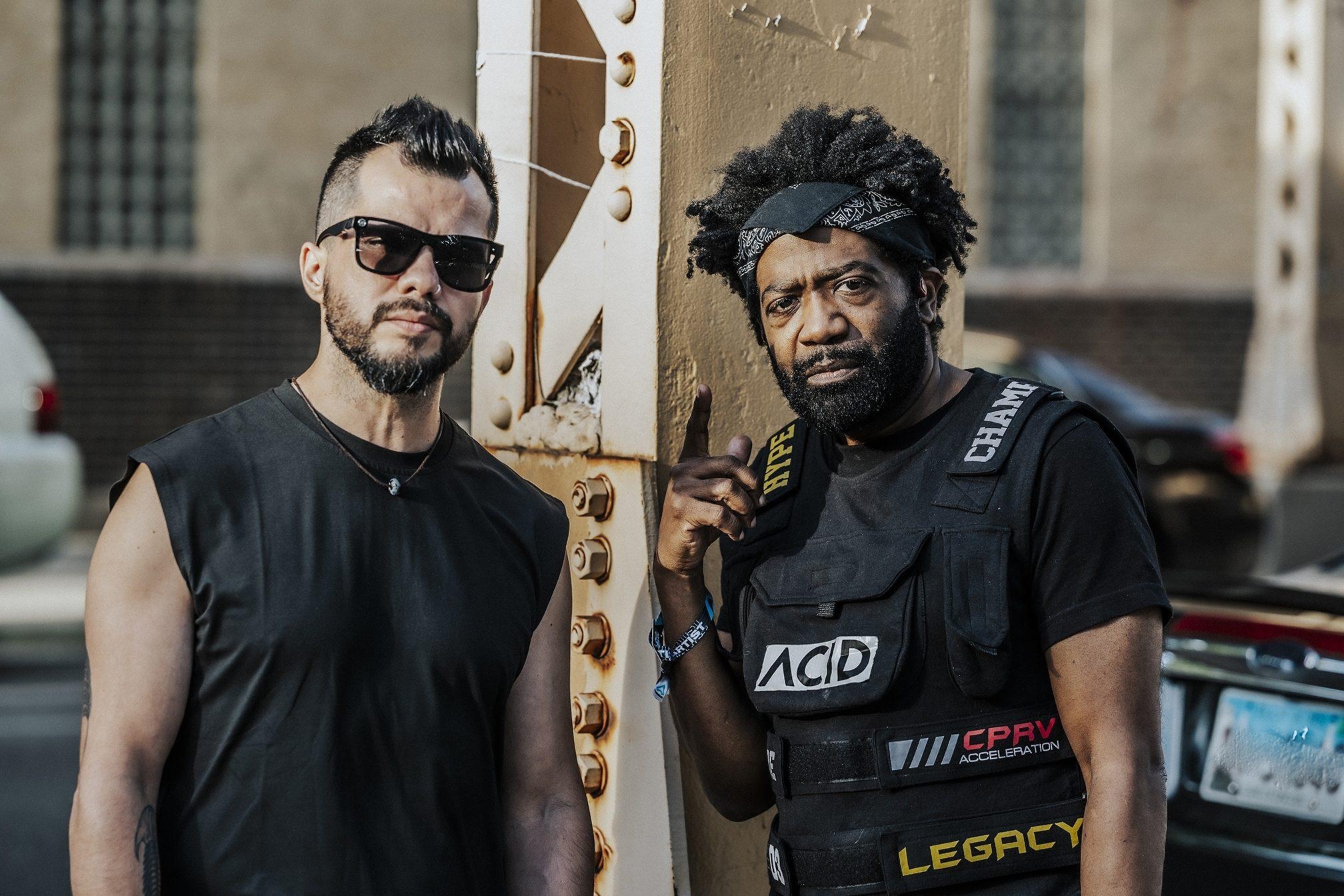
Hiroko Yamamura — a respected and versatile Chicago DJ who plays Thursday’s pre-party at Smoke & Mirrors under her drum ‘n’ bass alias Biobooster, opens the Expansions stage on Friday with a set of sultry house b2b with DJ Minx and closes Area 909 on Sunday with a blistering solo set of breakneck techno — agrees. “The shame of it is, as much as we mention these innovators, they're not booking them. You have some of the best DJs, who created some of the original house tracks, and they are not booked internationally,” she reflects. “If you're truly a house fan, if you really want an experience of what that initial thing is about, I hope the international community come [to Chicago] while they're alive. Because we are losing people constantly unfortunately. Let's recognise and celebrate these treasures and who they are.”
“We want people to know where this came from, and if you already know that, we want you to come out and have an amazing time and maybe hear some new acts,” says Stuart Hackley. “If you're new to the community, we want you to learn even more about it, and respect where it's been, but also enjoy where it's going.”
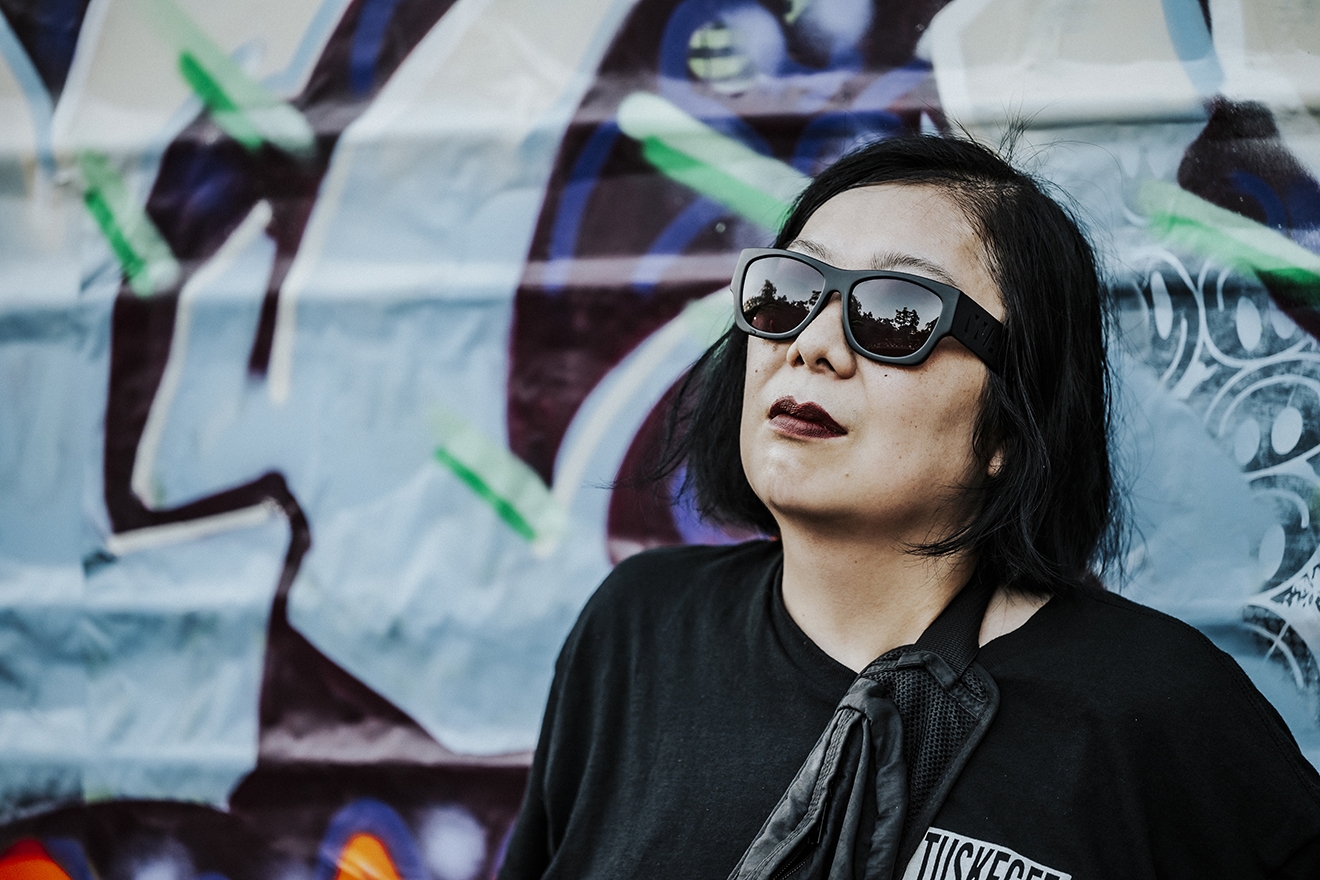
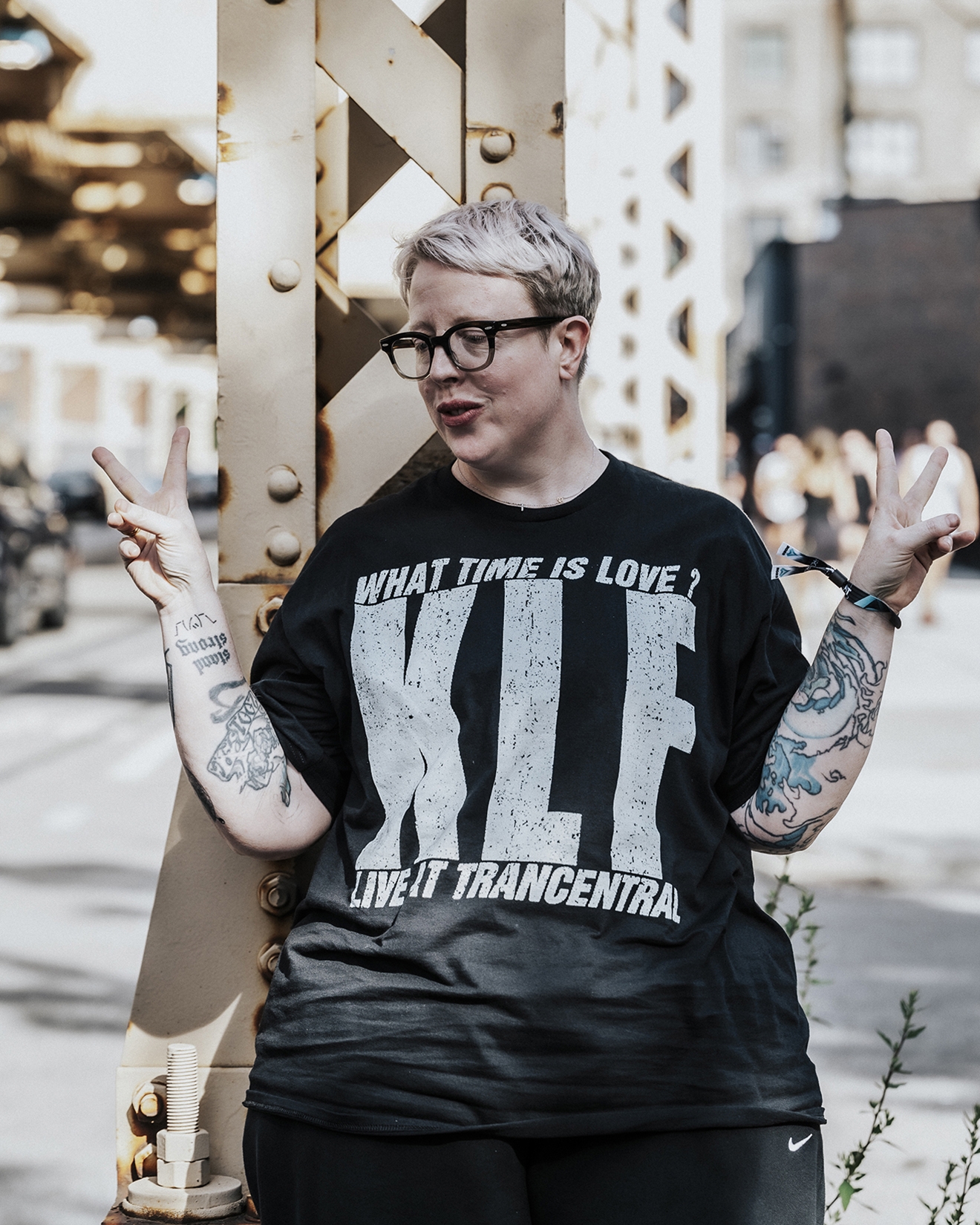
The Blessed Madonna, who grew up in Kentucky but has ties to Chicago as a former resident and talent buyer at Smartbar, thinks it’s important that the city’s enduring influence on the evolution of house music is recognised as new strands develop around the world. She points to the impact Movement Music Festival and its spiritual predecessors have had in Detroit since 2000, elevating the genre’s originators alongside broader bookings and consistently attracting new generations of artists and fans to the birthplace of techno, hoping that ARC’s international appeal will have a similar effect.
“I hope that being here right now, the people will realise that Chicago is not just a legacy city. In my mind, the very best DJs in the world are here,” she says. “I live in London, and this is no shade to London, but I would put Chicago and Detroit up against anybody. It's just a different standard. To get booked here, to play, to be able to emerge from here - the bar is very high.”
“We deserve to be a part of the global conversation and not spoken about in past tense. If anybody had any idea how good it really is here when it's at its best… it makes this city like nothing else,” she declares. As a first-time visitor myself, her words are no exaggeration.
If anyone was misguided enough to think house had stagnated in Chicago, DJ Heather is keen to set the record straight. “I find that people think I ‘represent a certain era’. But I don't just play records from that era, because music is ever-evolving, and my tastes have always been expansive,” she says.
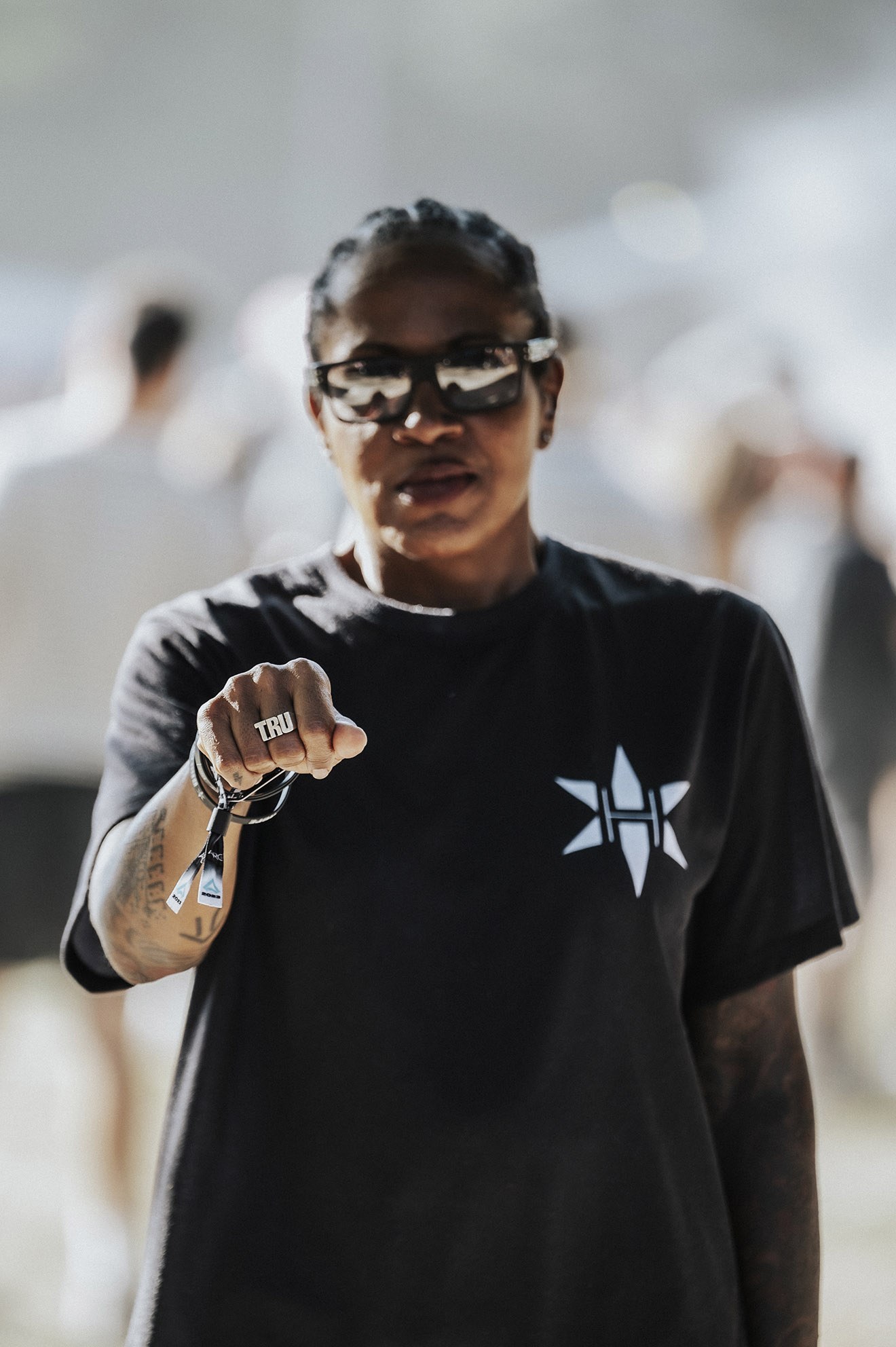
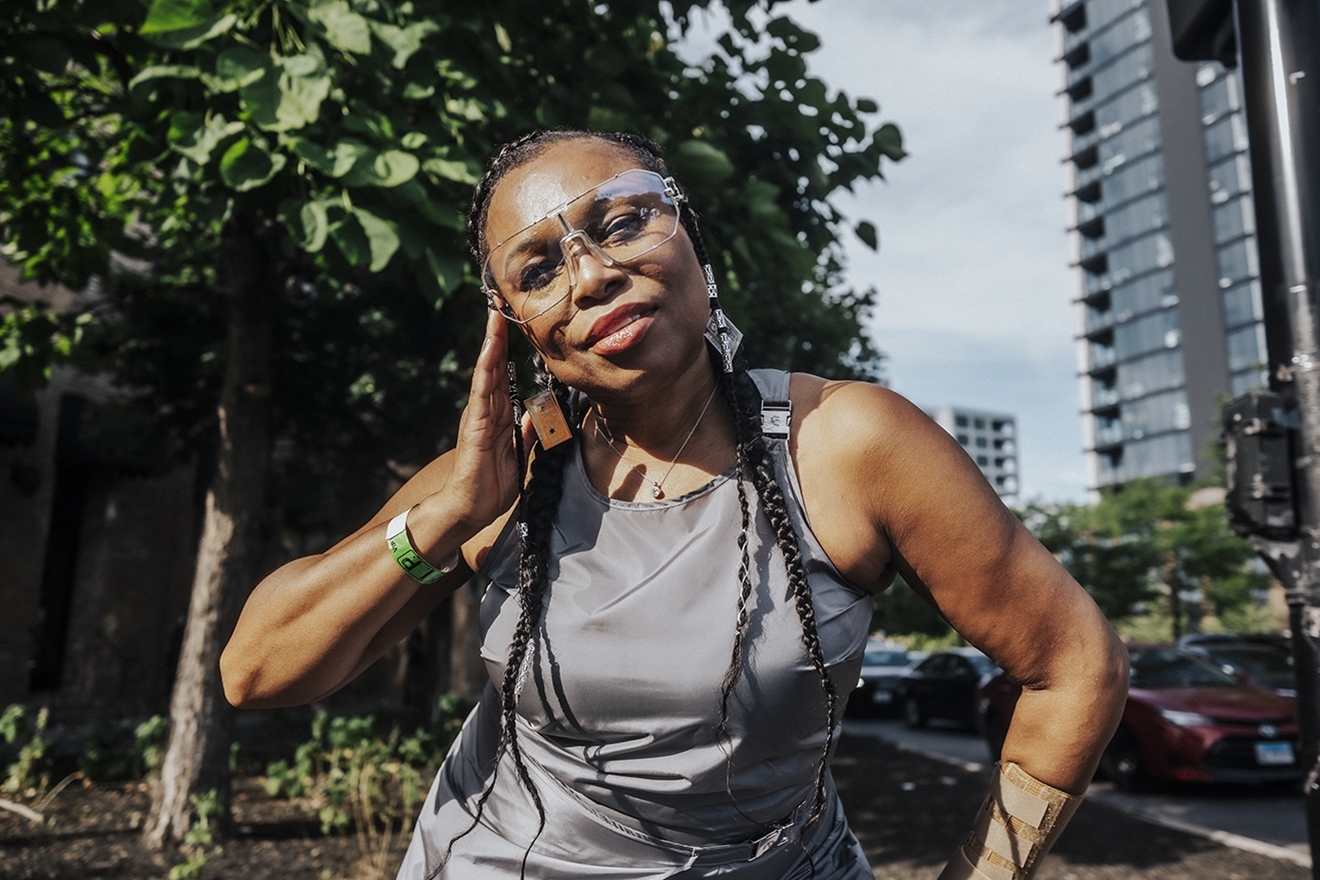
DJ Lady D is full of praise for the contemporary scene. “There's so many young people involved in house right now, especially young queer people. They love house, and I know why, because it's liberating. Where else can you be yourself? There's no posturing, there's no violence, it’s welcoming. It's all about that love, that unity, that community,” she says. “For people who are on the margins who feel endangered in some ways, house is a safe place, and people create room for people who are different, who are othered.”
“I think Chicago's witnessing a rebirth, especially after lockdown. We had a lot of people that just worked on music nonstop,” adds Hiroko Yamamura, who, along with DJ Heather, reflects on the importance of ARC staying conscientious in how it balances presenting Chicago greats, new talents, and international acts as the festival evolves. Mike Dunn, a member of the legendary Chosen Few DJs collective, would like to see more spots for Chicago’s Black pioneers on the main stage.
Read this next: Carl Cox: "EDM has played a massive part in the techno resurgence"
Some discerning dancers drawn in by the wealth of revered names on the bill might balk at what they deem as acts with more mainstream appeal, but Hiroko is unfazed. “Don't turn into the person that is teasing people for liking what they like, the point is to leave that pure. That was the bully in high school that's like 'you're the weirdo for listening to this'. I think all of this can go on at the same time,” she says. “For me personally, music was a lot about coping with depression or loneliness. There are many times music really saved my life. Who cares what the person looks like or their age if this song made you feel better and pulled you out of that moment. Even if just one time. It's all worth it.”
The overarching agreement when speaking to Chicago’s finest at ARC is that an event of this kind in the city is long overdue. “I think it's great to have a festival like this with so much talent from all over the world to really pay homage and respect to this genre that we built,” says Terry Hunter. “It's very important. Usually we have to go across the waters or to Vegas for big festivals,” adds Mike Dunn. “This is the mecca for house music, it's only right,” says Lady D, who calls the festival “insightful and visionary”.
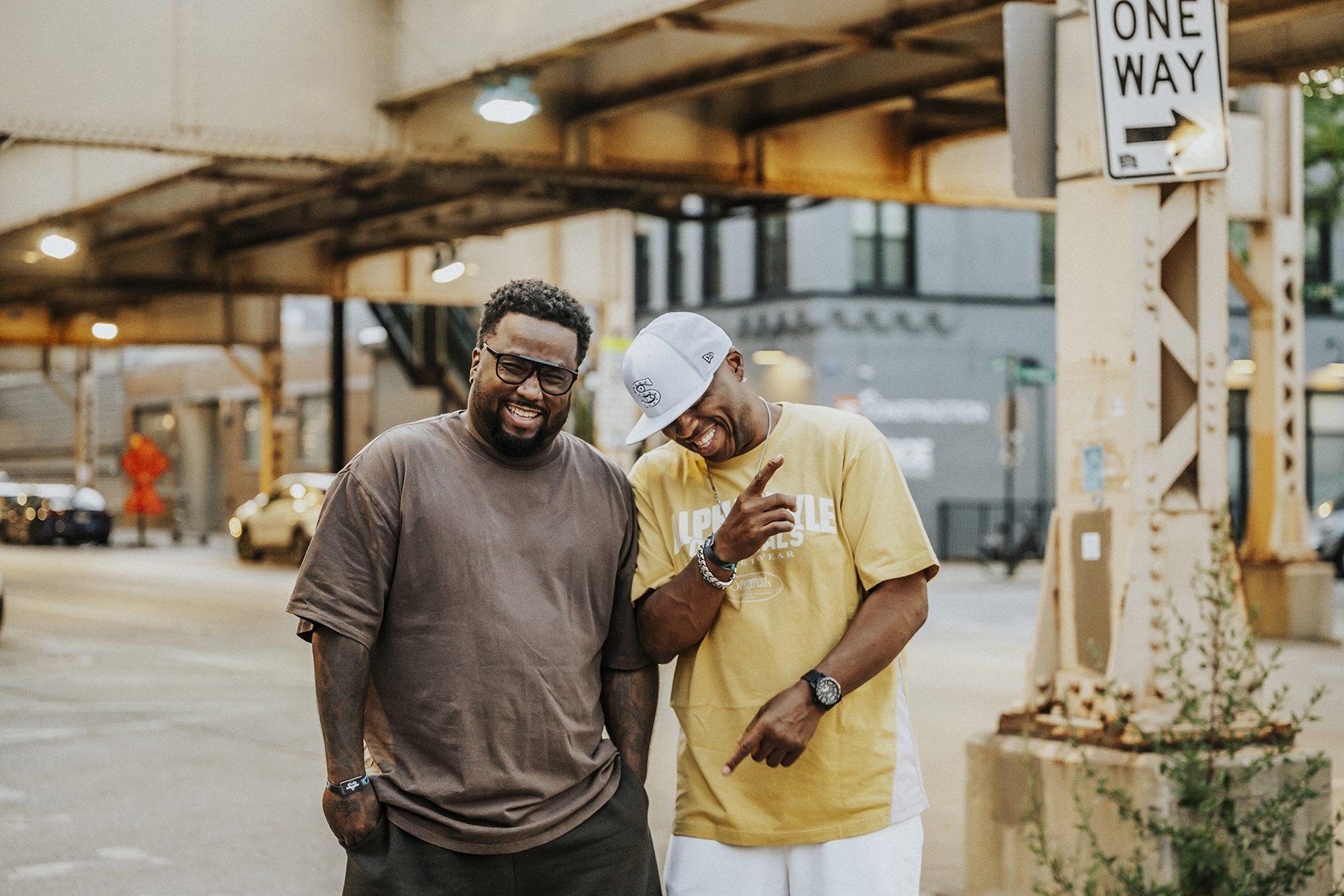
The slow burn towards an event like ARC starting up does in some ways feel true to the spirit of Chicago and how house began. It was able to form in the city because of how many separate influences converged in the nightlife scene over a prolonged period.
DJ Heather, DJ Lady D, Hiroka Yamamura and The Blessed Madonna all name numerous influencing genres, ranging across funk, soul, new wave, R&B, pop, disco (including Italo and Philly styles), punk rock and industrial. Even when house music got its name, it was all of those things, without clearly delineated lines. “It was really a liminal space between them,” says The Blessed Madonna. All-ages club Medusa’s, which opened in 1983 after The Warehouse had closed, was significant as a cultural melting pot that impacted the still-developing sound and culture.
Read this next: Harder, better, faster, stronger: Has dance music got harder and faster?
“To me there was this benefit to not being on the coast,” says Hiroko Yamamura. “In New York and LA, things always happen and are fashionable. In the Midwest, we get things very slowly. That was actually what happened with the machinery. Those drum machines were made to actually sound like real drum kits, the 303 was made to sound like a real bass guitar, and it did a really bad job of it. The 909s, the 808s, they were in the discount bin by the time they got here.” Roland’s instruments being affordable, in the words of DJ Lady D, “democratised the studio experience. It went from having to spend a lot of money, going with a lot of musicians, to you could do it on your own.”
After establishing that culture in a way only Chicago could, the sound has gradually morphed in unique directions through international territories that have put their own stamp on it. South Africa has been firing on all cylinders, developing styles such as Afro house, kwaito, gqom and amapiano, while other subgenres such as French touch, hard house, Balearic beat and desande have arisen in France, the UK, Ibiza and Brazil. Many developments have also occurred at home in Chicago or nearby in North America, such as ghetto house, footwork, ballroom, and Baltimore and Jersey club.
In a globalised world, all of these styles exist in a symbiotic relationship, influencing each other. ARC not only educates but provides a focal point to keep things moving in the ever-fertile scene of Chicago, which the city’s leading artists welcome.
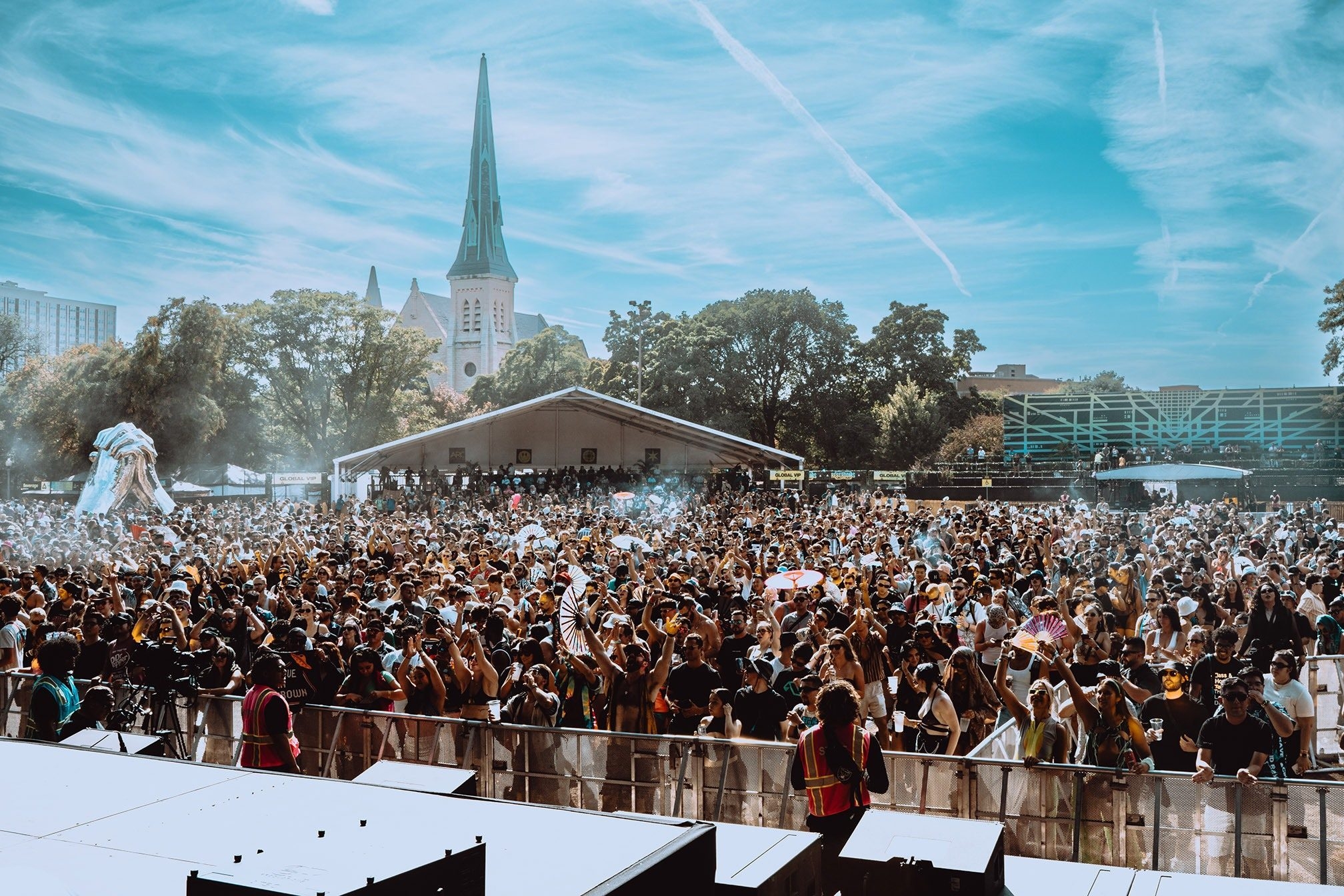
“We’re so open,” says DJ Lady D. “People need to understand, house is an umbrella. We've really welcomed other forms of music.”
“The things coming out of South Africa man, and Nigeria, anywhere around the world, as long as they stay true to the sound and they flip it in they own way, I'm all for it, I support it, I play it,” says Terry Hunter. “I sometimes mimic it and take their style, because it's so dope. That's what we do, we get inspired by one another.”
“Sometimes when people come to Chicago they think they have to play a certain sound or style, but it's like, you're here to do you, and vice versa,” says DJ Heather. “It's nice when people tip the hat, but sometimes you don't have to tip that far in. We want you to do what you're here to do. We don't need to hear songs that for us are classics, because we understand that. You know, do your thing!”
Themba appreciates ARC creating the opportunity for international acts to do just that. “It's very easy to just book someone who plays Themba's music and be like ‘we've covered that’, but to go and fetch the guy from Africa or Brazil or the Middle East, it shows you that these people are serious. It's not just talk, it's action as well,” he says.
“A lot of us, also because of our [apartheid] past, weren't allowed to believe we were good enough to be here to play at a festival like this,” he continues. “You watch something on TV and it's like man that's unreachable. And now, we are the guys that the world wants to come, whereas before we couldn't even picture ourselves there. It's really amazing, it's humbling.”
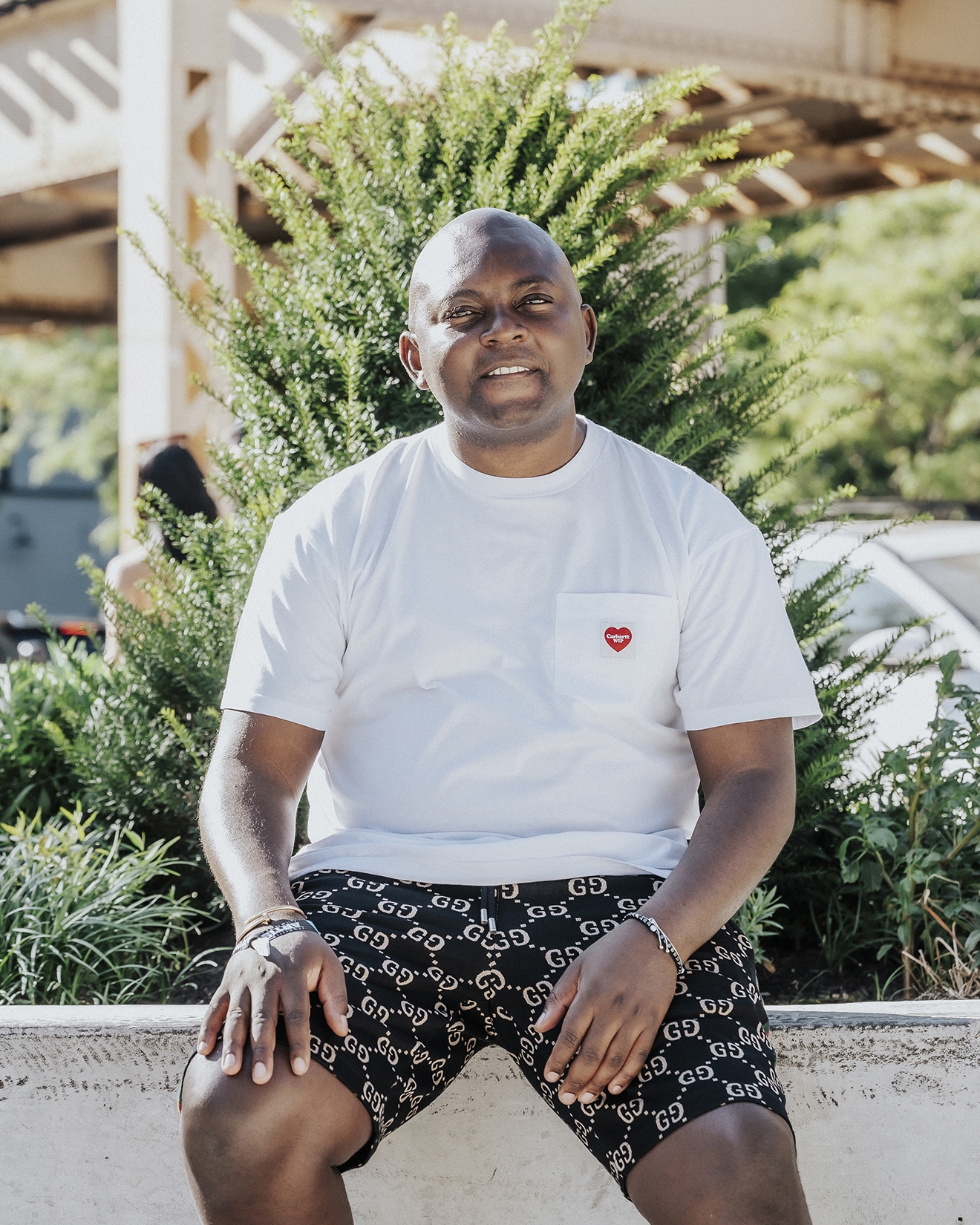
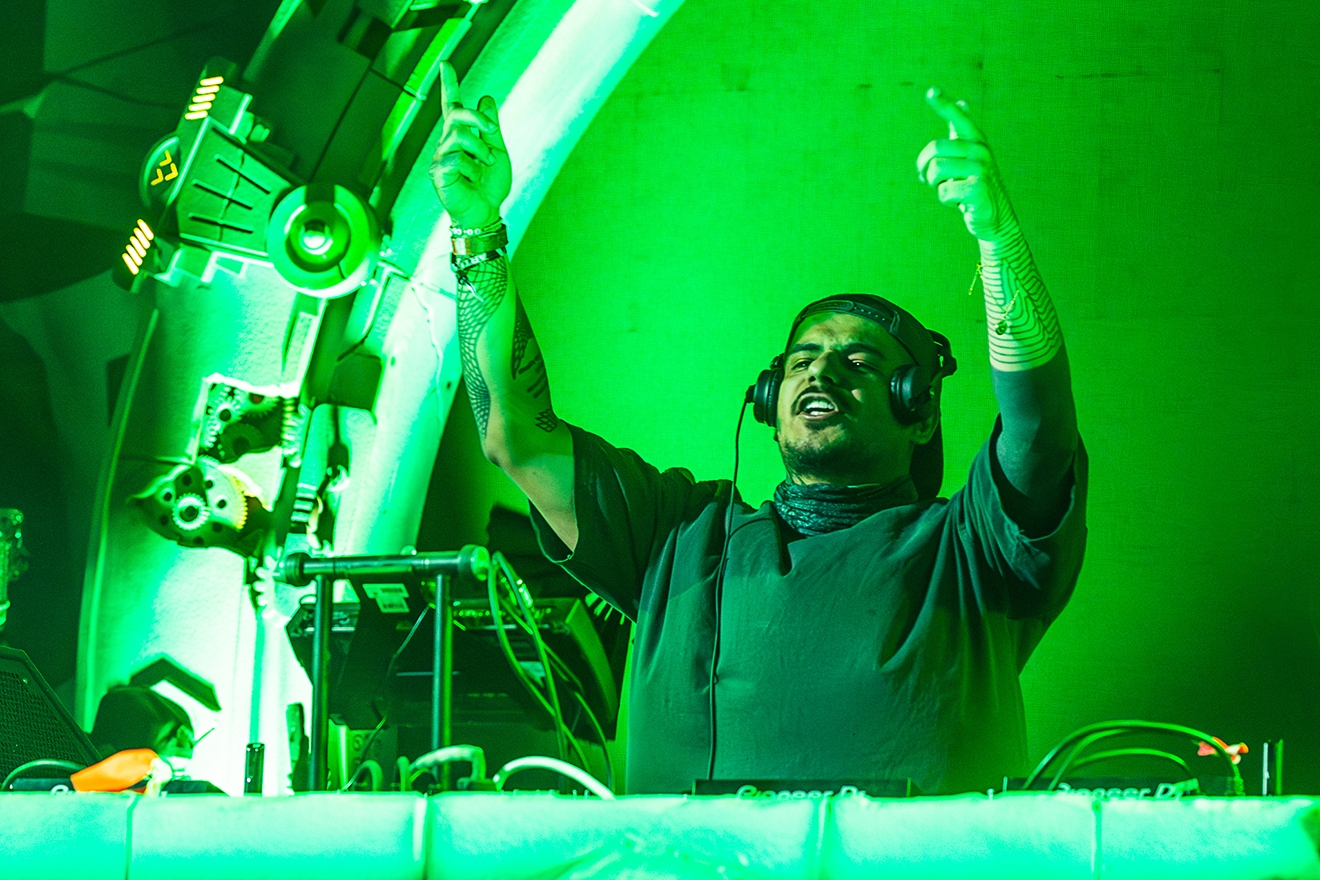
Brazilian artist Vintage Culture was also overjoyed to be invited. “I've been following ARC since its beginnings and watched it grow. Playing has long been one of my ambitions and has surpassed my expectations,” he says. He had an ordeal of a journey getting there, escaping from the chaos of Burning Man on foot, and down to his final water bottle when a passing pickup truck miraculously lived up to its name. “I still can't believe we made it to Chicago for the show on time. That was an experience I'll always remember.” The crowd also seem similarly generally elated by the festival experience, with an easygoing atmosphere and floods of glowing reviews on ARC’s socials.
The response has buoyed the founders. “It makes us want to do even better for the festival year on year, and do better to tell that story, contribute to the culture and the community and protect those roots, but also grow that next generation of the house music fan,” says Stuart Hackley. John Curley mulls over loose plans to “involve some other avenues to get the word out”, alluding to the conference events that might take place around a Miami Music Week or Amsterdam Dance Event. “I'd like to get some of the Chicago musical experts and founding fathers, get people together to talk,” he ponders.
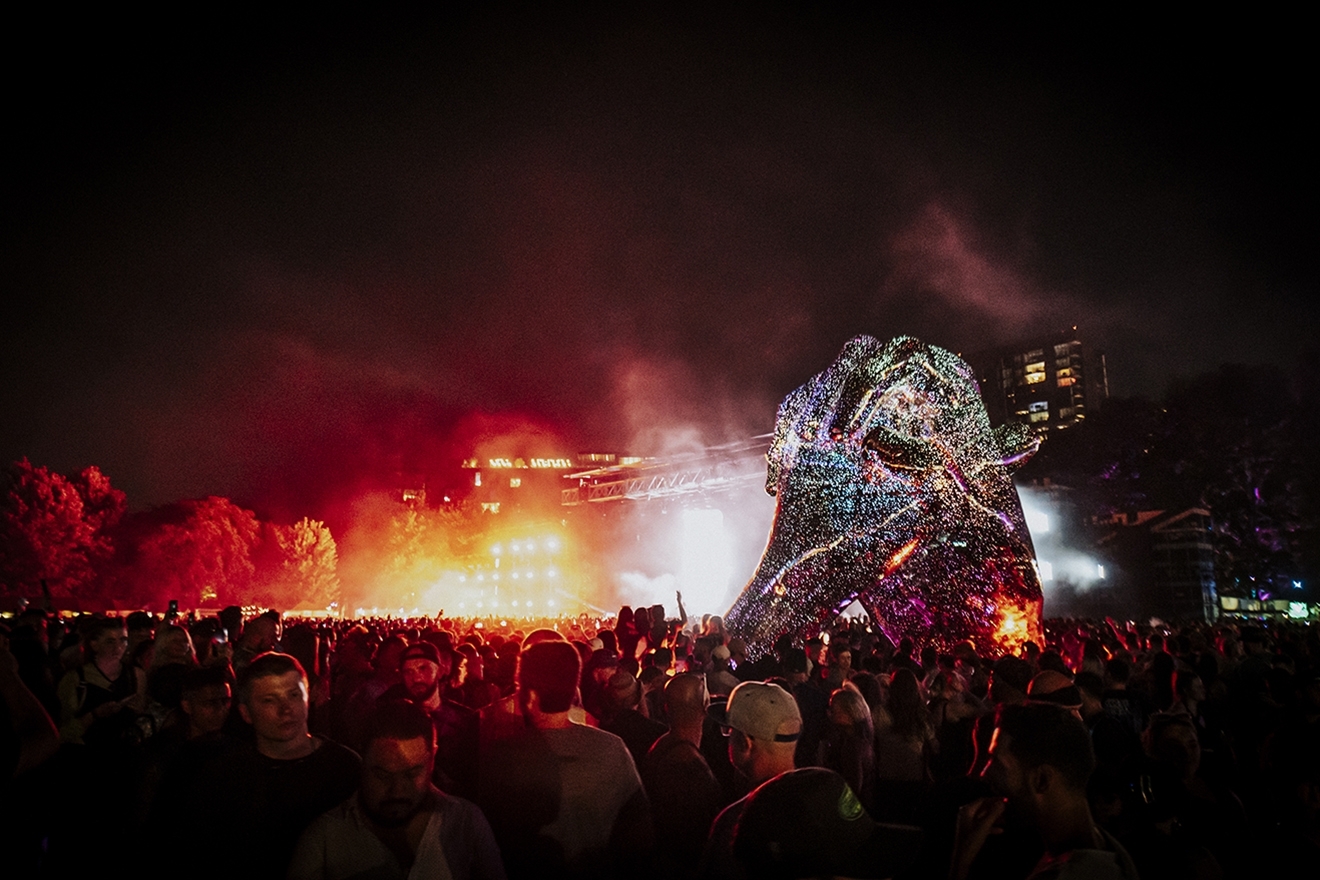
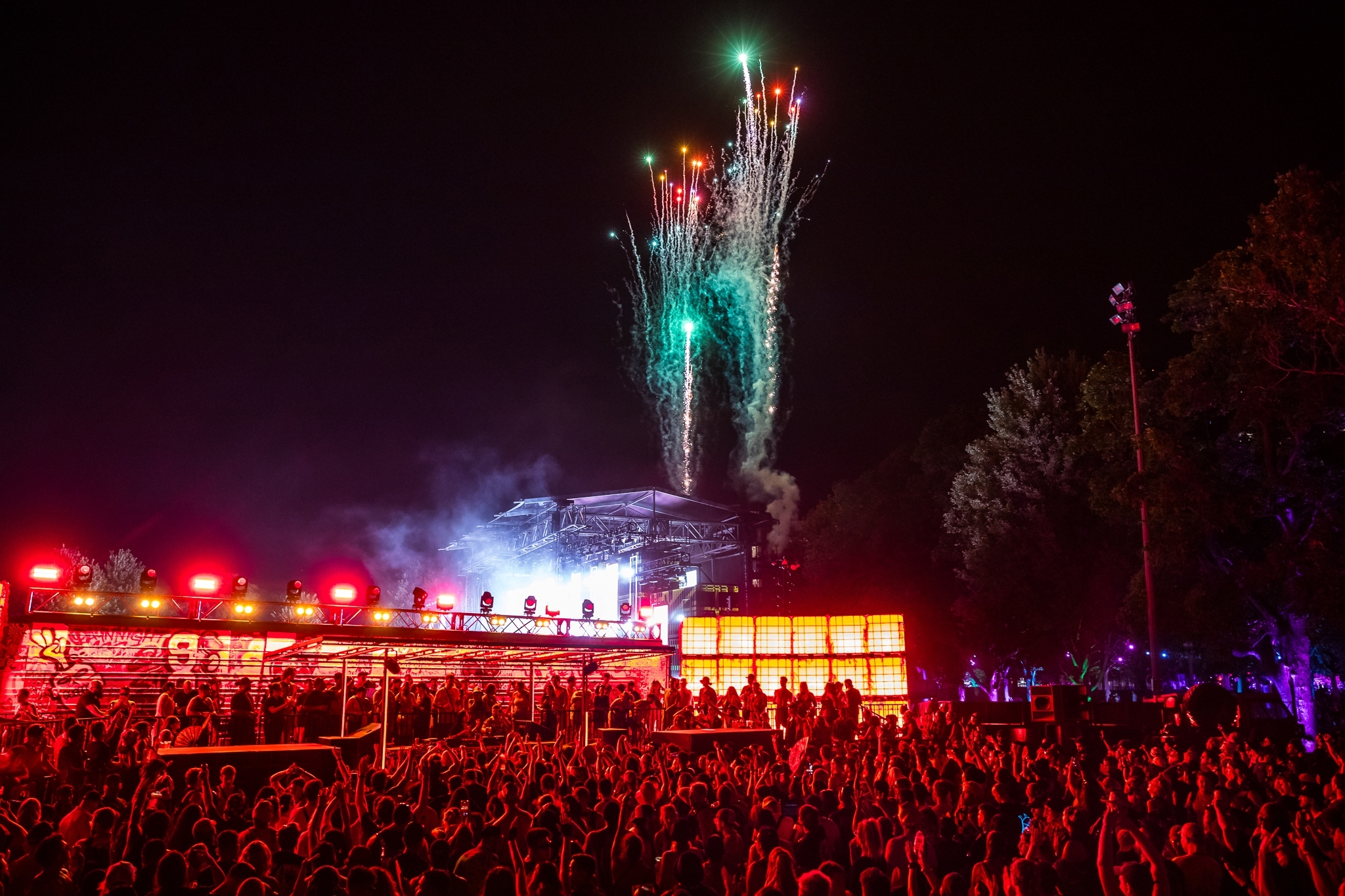
ARC’s success so far is encouraging for its future prospects: in giving due shine to one of the world’s greatest cities for dance music and its inahbitants, throwing a first-rate festival, and the possibility of inspiring new global evolutions of house music.
But don’t get it twisted, if Chicago doesn’t rate it, someone will let you know. “One of those important things that Chicago does is that it protects and guards traditions. It also develops house, but I don't think that means that you throw away the things that are good and important,” says The Blessed Madonna.
“I'm always thinking about whether or not I would be embarrassed in front of DJ Heather or Derrick Carter. What are they going to think when they open the record at Gramaphone? What is the staff gonna think, not even the customers, what's Michael Serafini gonna think? Chicago keeps you honest.”
Patrick Hinton is Mixmag's Editor & Digital Director, follow him on Twitter


